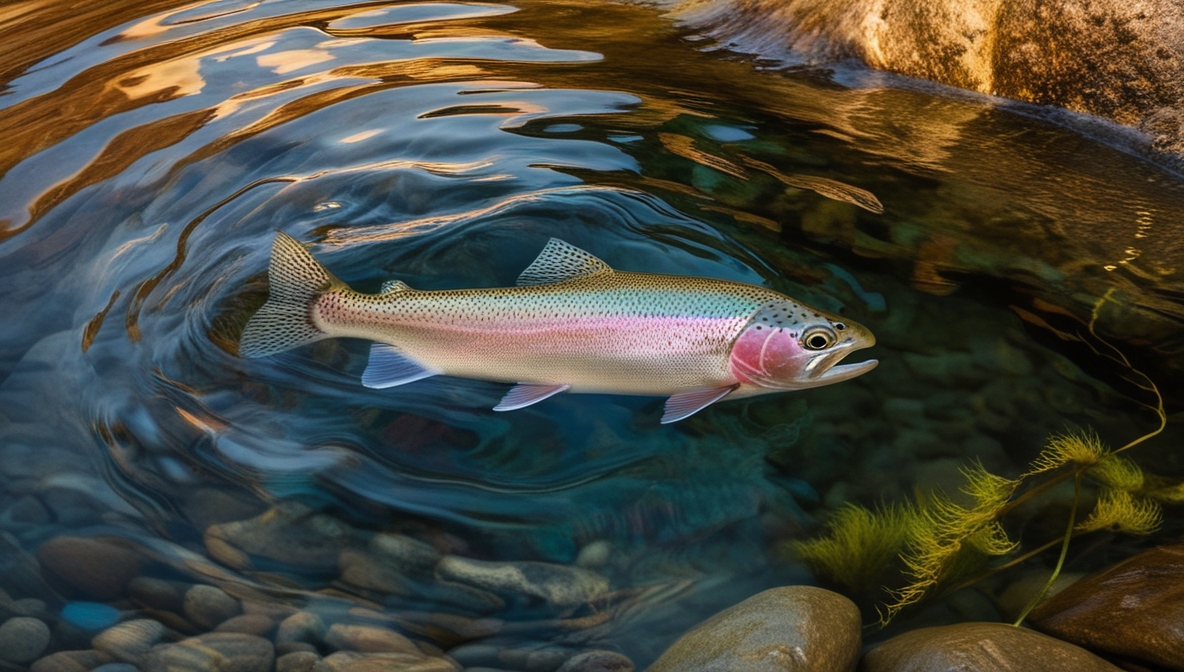
Helene Devastates WNC Fish Hatcheries, Threatening Economy & Ecosystems
WNC -- November 14, 2024: The devastation caused by Hurricane Helene in Western North Carolina extends far beyond roads and homes, with significant damage inflicted on the region’s fish hatcheries.
This damage is expected to have lasting effects on both local ecosystems and the economy, as hatcheries like the Armstrong State Fish Hatchery and the Cherokee Hatchery on the Qualla Boundary struggle to recover from catastrophic losses.
The Armstrong State Fish Hatchery, one of North Carolina’s primary suppliers of trout for public stocking programs, saw its facility overwhelmed by floodwaters and landslides. With water supply systems severely compromised, the hatchery lost approximately 600,000 trout of various sizes. Located in McDowell County, Armstrong has historically provided trout to support recreational fishing across the region. The hatchery now faces an indefinite closure while officials assess the extent of structural repairs needed to restore operations.
Adding to the regional challenges, the Eastern Band of Cherokee Indians’ trout hatchery on the Qualla Boundary also sustained significant damage. Floodwaters carried away an estimated 30,000 fish intended for tribal lands and local streams, where trout are central to both recreational and cultural fishing practices. The loss affects more than just fish numbers—it impacts the tradition, ecology, and local economy that depend on healthy trout populations.
Economic Impact on the Region
The fishing industry, which includes trout fishing as a significant attraction, is a cornerstone of Western North Carolina’s economy, generating close to $1.4 billion annually and supporting local businesses, lodges, and outdoor tourism. Hatcheries like Armstrong and the Qualla Boundary facility play an essential role in sustaining this industry by ensuring trout populations are robust and streams are well-stocked. The loss of hundreds of thousands of fish means that the 2025 fishing season and possibly beyond could see lower trout availability, reducing the region's appeal to anglers and impacting tourism revenue.
“The damage from Hurricane Helene has been nothing short of catastrophic for the hatcheries and for the fishing communities that depend on them,” said a representative from the North Carolina Wildlife Resources Commission. “We’re actively working to find solutions to fill the gap, but it will take time to recover fully.”
Reallocating Resources to Mitigate Shortfalls
In response to the losses at Armstrong, the North Carolina Wildlife Resources Commission has made adjustments to its trout stocking strategy. To offset the impact, the agency has delayed planned renovations at the Bobby N. Setzer Hatchery, another major trout producer in the region, to boost production in the short term. Despite these measures, experts warn that the restocking adjustments may only partially fill the void left by Armstrong’s closure.
The Cherokee hatchery’s losses pose additional challenges. Situated on tribal land, this hatchery supports not only ecological and recreational needs but also sustains traditional fishing practices for the Eastern Band of Cherokee Indians. Losing tens of thousands of trout means reduced availability for stocked streams on the Qualla Boundary, impacting local tourism, subsistence fishing, and the cultural significance tied to these fish.
Path to Recovery and Future Resilience
Both state and tribal authorities are mobilizing resources to restore hatchery operations, although the road to full recovery remains uncertain. Armstrong’s restoration will require extensive repair to water supply lines and hatchery systems, a process expected to take several months or more. Tribal leaders are similarly assessing the needs of their hatchery, exploring additional protections to fortify it against potential future flooding events.
This response includes evaluating new infrastructure designs that could help safeguard hatcheries against increasingly severe storms in the region. The Wildlife Resources Commission and the Eastern Band of Cherokee Indians are also looking into collaborative efforts to support shared fish populations and resource management for the 2025 season and beyond.
Ecological Concerns and Long-Term Implications
The loss of such a large number of fish will likely have ripple effects on the local ecosystem. Trout play a key role in Western North Carolina’s freshwater ecosystems, supporting biodiversity and serving as an indicator of stream health. The sudden reduction in stocked trout could impact predator-prey dynamics in local streams and create imbalances that may take years to stabilize.
Local conservation groups have voiced concerns about the potential long-term effects on the region’s waters, which are prized for their quality and diversity. With hatchery trout stocks significantly reduced, state and tribal authorities may need to introduce supplemental conservation strategies to ensure that natural trout populations can thrive and adapt to changing conditions.
Community and Environmental Resilience
The impact of Hurricane Helene on Western North Carolina’s fish hatcheries is a stark reminder of the region’s vulnerability to natural disasters. For communities that rely on these hatcheries, the road to resilience will involve not only rebuilding but also rethinking infrastructure and resource management in ways that prioritize long-term sustainability.
WNCTimes
Image: WNCTimes
“Nature has a powerful way of reminding us how interconnected we all are,” said a spokesperson from a local conservation group. “We’ll need the support of the community, along with state and tribal leadership, to rebuild these resources and ensure that our local waters remain a source of pride and prosperity for future generations.”
As both Armstrong and the Cherokee hatchery work toward recovery, Western North Carolina’s resilience will be tested. The collaborative efforts now underway may pave the way for a more sustainable approach to resource management in the face of climate challenges. The journey ahead is uncertain, but the commitment to rebuilding remains steadfast, as local communities and leaders unite to restore the hatcheries and the vibrant life they sustain.


 How to resolve AdBlock issue?
How to resolve AdBlock issue?